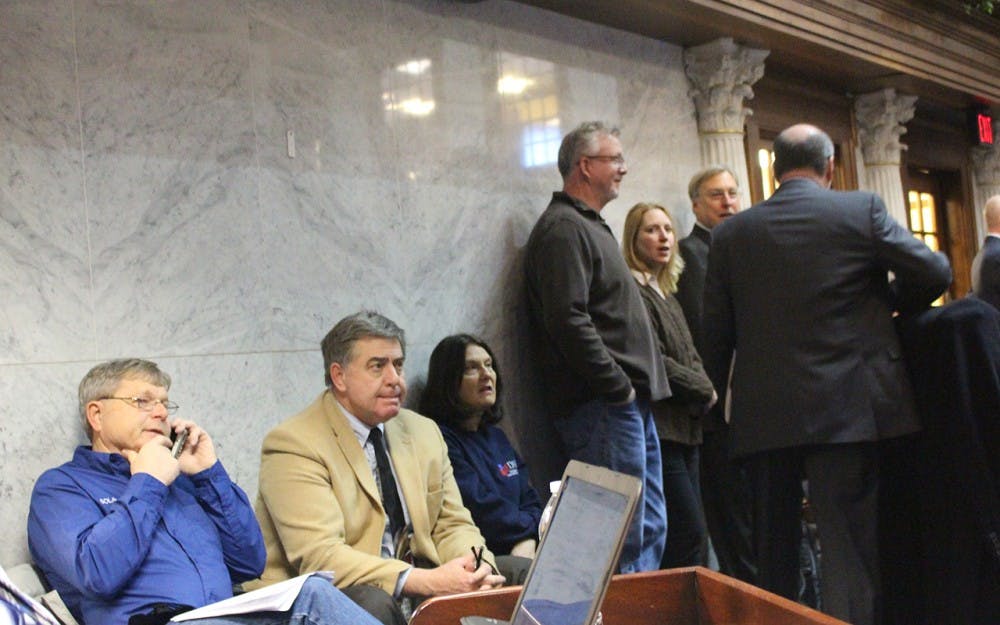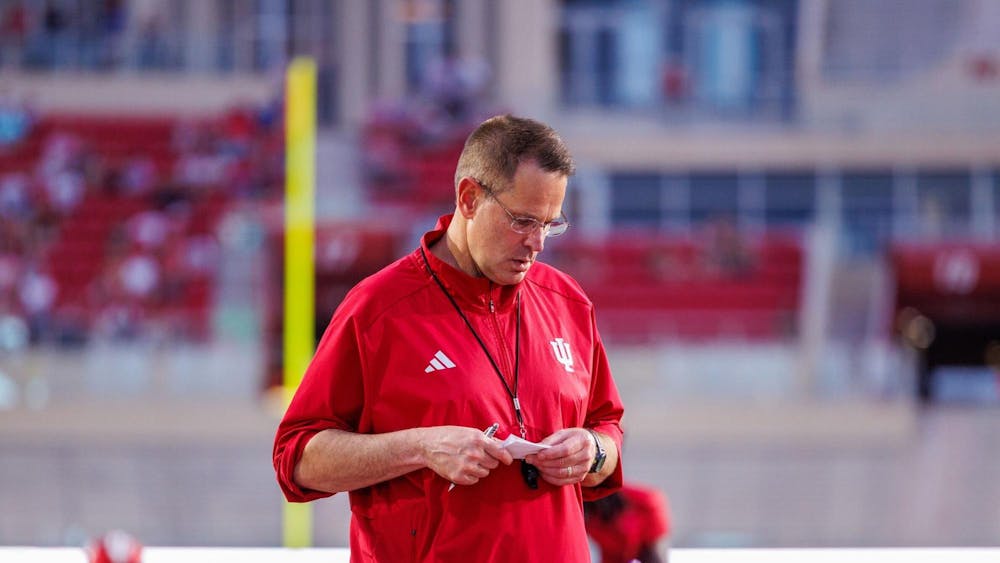Dozens of people filled the Statehouse early Thursday morning and lined the walls of the Senate chambers to testify against a bill that would eliminate net metering, a big incentive for using solar power, in Indiana.
The testimony stretched well past its allotted time. Half an hour after the hearing in the Senate utilities committee was supposed to end, about 30 scheduled testifiers opposed to the bill still hadn’t spoken.
Senate Bill 309, authored by Sen. Brandt Hershman, R-Buck Creek, would completely outlaw net metering after a 15-year period with the intent to grandfather in those who are currently in the process of installing renewable energy.
Before testimony began, Hershman introduced an amendment in response to protestation from renewable energy proponents, and Sen. Jim Merritt, R-Indianapolis, committee chair, asked those in attendance to adjust their testimony accordingly. The amendment, which suggested allowing individuals 5 years to install solar power and then a subsequent 10 years during which they could continue to use net metering, was was taken by consent. Originally, the bill stated net metering would be illegal in 2027, 10 years from now rather than a potential 15.
Solar is a big investment for many. The equipment is expensive, but users begin to save money after a period of time using the renewable resource.
Net metering allows customers to be compensated at retail rates for excess energy that they produce and send back into the energy grid. Without it, customers would be compensated at substantially lower wholesale rates.
Hershman said he is not anti-solar or any other renewable resource but likes to think of himself as “technology neutral.” He referred repeatedly to net metering as a subsidy, which critics would later call out as a hot-button word and an inaccurate one.
“If you cannot make the economics of putting a panel on your roof and your payback period is longer than 15 years, then maybe you shouldn’t be putting a panel on the roof,” Hershman said to a silent audience.
Hershman’s amendment, criticized by Sen. Mark Stoops, D-Bloomington, for being too convoluted, would also get rid of the bill’s buy-all-sell-all provision, according to a testifier, which would have meant consumer’s excess energy would go directly into the grid and they would then have had to buy back the energy at a higher retail value. It also adds a 25-percent premium for those providing excess power to the grid.
For those testifying against the bill, these additions were not nearly enough.
“People outside Indiana may choose not to come here because of the signals that are being sent about the attitudes of our good state,” said Darrell Boggess, a solar user and member of the Solar Indiana Renewable Energy Network.
Opponents to the bill included members of renewable energy groups such as SIREN, scientists, lawyers, school superintendents and constituents. Testimony after testimony emphasized the benefits of solar usage to the energy grid.
One major pro-solar argument is that panels are beneficial to the grid in other ways, such as by being zero-polluting sources and by improving grid security. Hershman earlier discounted these types of arguments, saying that those benefits are “a fairly hard thing to price,” and that “what isn’t open for debate is the fact that in hard dollar terms there is a significant subsidy going on.”
Supporters of this bill argue that it’s a fair policy because people with solar power pay less for use of the energy grid than people without it, so the people using traditional energy sources have to incur this extra cost.
However, it is unclear whether this is actually true or not. One woman, Anne Dowhie from Evansville, Indiana, said the person sitting next to her had brought an energy bill to the Statehouse that day, and the back of the bill states “basic service charges” and other grid-related costs are included in the bill amount.
An argument from many testifiers was the legislature doesn’t have enough Indiana-specific data regarding net metering to rush forward with policy on the matter.
Some suggested a committee should be formed to examine and conduct research on the subject. Sen. Tim. Lanane, D-Anderson, supported this notion in a retort to a bill supporter.
“I’d rather get it right than have a bunch of us legislators who really aren’t experts —” Lanane said, and the rest of his sentence was drowned out by applause.
As of 2015, according to the U.S. Department of Energy, 44 states plus Washington, D.C., have implemented net metering policies.
Several school administrators also testified against the bill, saying solar usage had saved them tens or hundreds of thousands of dollars that they were able to redirect to help students. Many said they wouldn’t be able to continue using solar if the bill passes.
Much of the hearing centered on confusion and frustration over discrepancies regarding the complicated topic, and Boggess touched on this, too, in his testimony.
“We’re at a crossroads for our energy future,” Boggess said. “I really honestly truly believe the reason we don’t have solar energy in Indiana is because most people don’t understand it.”






